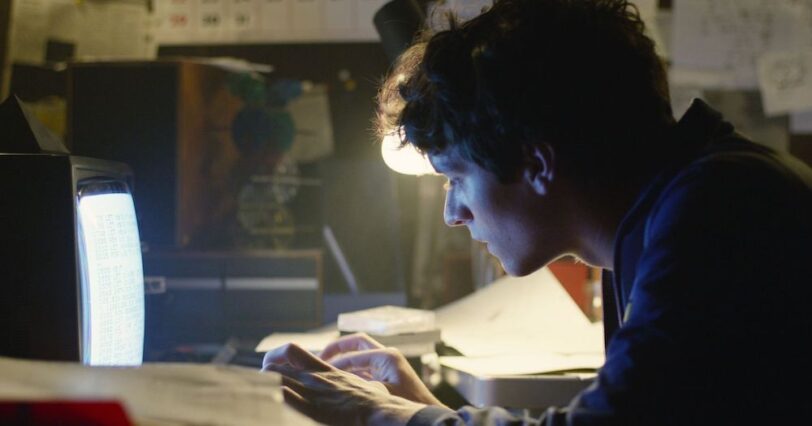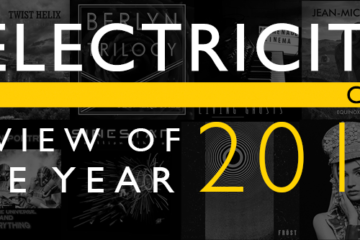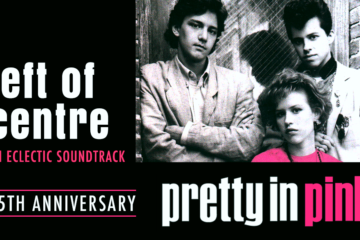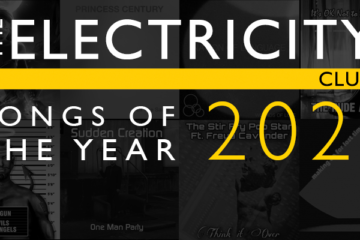The choice is yours…
There’s few shows on TV that have managed to quite engage audiences in the peculiar manner that Black Mirror has achieved. Charlie Brooker’s science fiction-tinged show plays around with stories of technology gone wrong, dystopian futures and disturbing parables that always seem to be uncomfortably close to contemporary culture.
Ahead of a new series due to begin in the new year, Netflix have unveiled a full-length Black Mirror film with an intriguing viewing concept. Bandersnatch tells the tale of Stefan Butler (Fionn Whitehead) a young programmer adapting a science fiction novel (also titled Bandersnatch) into a computer game. In the process of doing this, Butler is forced to confront the disturbing history of the novel’s author as well as grappling with the idea that his decisions are not entirely his own.
That last point is illustrated by the unusual way the film works, by allowing viewers to have a choice in which way the narrative plays out. By clicking on choices at relevant places in the film, the story unfolds in different ways – something which is reflected in the way the fictional Bandersnatch computer game works. This exploration on the nature of free will smartly pulls the viewer into the story, so that they themselves end up playing a role in the film.
Bandersnatch is set in 1984 and the attention to detail is surprisingly authentic (and even includes a recreation of a period-set WH Smiths). At the same time, the film is also very faithful to the computer technology of the era. Stefan Butler programmes Bandersnatch on a ZX Spectrum, which was one of the most popular home computers at the time.
Not surprisingly, when the home computing boom kicked off, there were more than a few crossovers into the world of music at the time. Thompson Twins, whose music features in the film, released a special game on a flexi-disc given away with copies of a computer magazine. The late Pete Shelly (of Buzzcocks fame) included a Spectrum program on his 1983 album XL-1. Meanwhile, the music of Wham! Featured on a software release which allowed people to actually play music on the Spectrum.
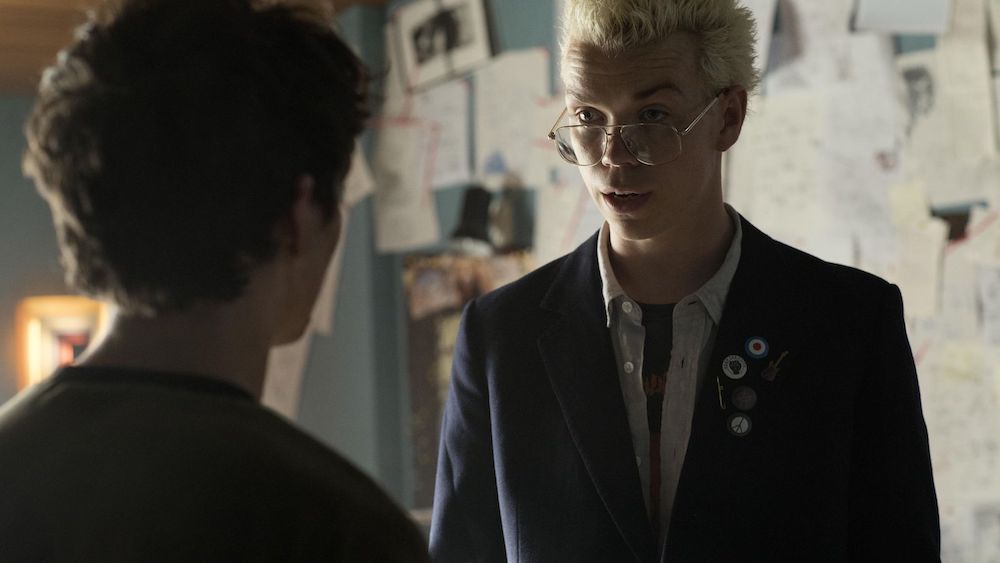
Music, as you would expect, is a vital element for conjuring up the 80s aesthetic that Bandersnatch presents. Trying to capture that authentic mood is quite a challenge, but the film does a successful job without falling into parody. Allowing the viewer to have some control over those music choices is also an intriguing idea (sadly, you don’t get the choice to stop Kajagoogoo releasing records…).
Threaded throughout the running time of Bandersnatch are an assortment of popular pop outings of the time. This includes the iconic ‘Relax’ by Frankie Goes To Hollywood. This single, released on the ZTT label, marked the debut release for the Liverpool band, a single which also brought controversy due to the risqué themes of the lyrics. As a result, the BBC briefly banned the single – a move which ironically helped raise its profile and it landed a No. 1 spot in January of 1984.
‘Relax’ is probably Frankie Goes to Hollywood’s best-known release, but it’s also a song that’s synonymous with 80s culture. Part of that legacy is due to a popular run of Frankie-inspired T-shirts with bold text announcing slogans such as ‘Frankie Say Relax Don’t Do It!’ In fact it’s difficult to imagine the mid-80s without these ever-present T-shirts.
This was also the era for eclectic pop duo Eurythmics to come into their own. Having already captured the imagination of the UK listening public with the sublime ‘Sweet Dream (Are Made Of This)’ in 1983, they returned with ‘Here Comes the Rain Again’ the following year. The composition utilises a strings arrangement (actually orchestrated by Michael Kamen) to give the song a lush, classical feel. It also didn’t do too badly in the charts, scoring a No. 8 position for Annie Lennox and Dave Stewart’s musical collaboration.
It’s probably no coincidence that Bandersnatch is set in 1984, a year that also corresponds with the classic George Orwell novel. With its themes of surveillance, propaganda and control of reality, it’s a book that’s almost like a proto-Black Mirror story in itself. Eurythmics became involved in the soundtrack work for a Michael Radford’s film adaptation (something which brought its own controversy ) which resulted in another hit via their stirring vocoder-heavy single ‘Sexcrime (Nineteen Eighty-Four)’.
The previously mentioned Thompson Twins are also a feature in Bandersnatch. In fact their album Into The Gap forms part of one of the choices the viewer gets to make regarding the music that protagonist Stefan Butler selects during a bus journey. Opting for that choice means you get to hear the earthy tones of ‘Hold Me Now’, which proved to be the band’s biggest selling single reaching No. 4 in the charts. No bad for an unusual multi-instrumental mid-tempo piece that had apparently been inspired by an argument between Thompson Twins’ Tom Bailey and Allanah Currie.
Meanwhile, Into The Gap proved to be Thompson Twins’ most successful album release selling over 600,000 copies. It reached No. 1 in the UK charts at the time and spawned three Top 5 singles. Tom Bailey continues to write and perform music today.
The other choice of album that Stefan (and the viewer) ponders alongside the Thompson Twins release is Now That’s What I Call Music! 2. The phenomenally popular compilation album series is another cultural touchstone of the era. These releases allowed you to capture a concise picture of the UK charts at the time. Volume 2 featured the likes of ’99 Red Balloons’ (Nena’s inexplicable hit single about nuclear holocaust…), The Flying Pickets’ oddly mesmerising acapella cover of Yazoo’s ‘Only You’, The lush melodies of ‘Wishful Thinking’ from China Crisis and the pure pop of Howard Jones’ ‘What Is Love?’.
The film’s soundtrack also pulls up XTC’s ‘Making Plans For Nigel’, which was actually released in 1979. The lyrics, which have a slightly sinister aspect about parents planning out their son’s life, slots in very neatly with the similarly sinister relationship between Bandersnatch’s Stefan and his father.
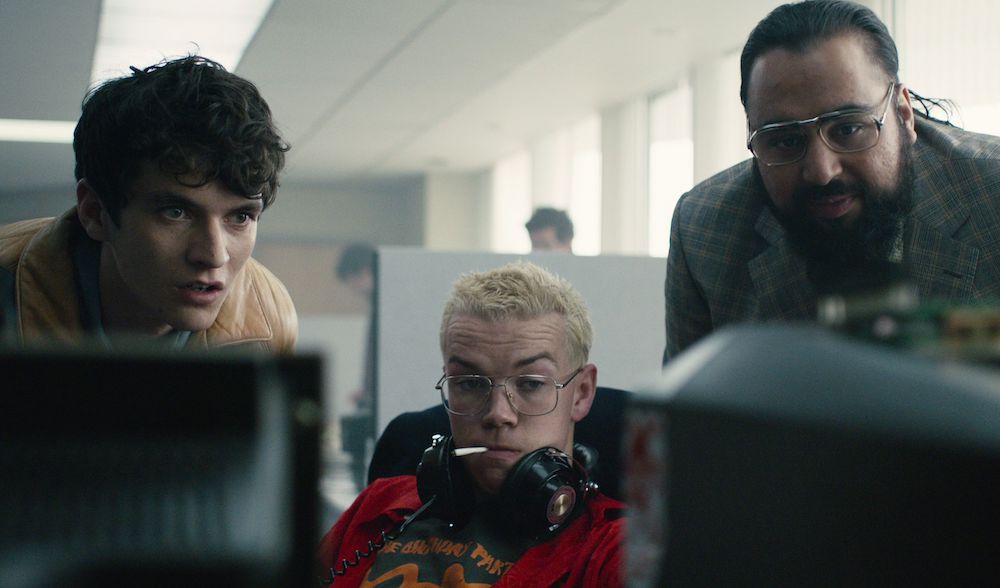
Those with keen eyes will also spot cassettes in Stefan’s room sporting the likes of Soft Cell, Icehouse, Altered Images and The Human League – all established artists from the world of synth-pop.
But there’s a more prominent use of electronic music at another crucial segment of the film. Having his own pedestrian music tastes dismissed by the more worldly Colin Ritman (Will Poulter), Stefan is summarily ordered by Colin to write down a list of artists to check out. It’s a list that will resonate with many music fans that grew up in that era: Joy Division, Bauhaus and The Cure being perhaps the most prominent of the post-punk acts.
But during the scene where Stefan is actually browsing through the record racks at WH Smith, he mulls over two albums, both of which represent a vital part of a developing electronic music world.
Tangerine Dream remain as one of the most well-regarded German electronic outfits of the time. Phaedra, their 1974 album, probably ranks highly as their best-known release. Although it didn’t do that well in their native Germany, when it was released on the Virgin Records label in the UK it reached No. 15 in the album charts and stayed there for 15 weeks.
Much of the compositions on Phaedra were prone to the limitations of Tangerine Dream’s equipment at the time, which was a common issue with electronic music of the era. As a result, some of the music is the result of the instruments detuning or going out of phase. But rather than detract from the music, these odd elements lend the piece an organic quality.
There’s a strange, otherworldly vibe to the music on Phaedra which has a haunting quality to it. As the soundtrack to a Black Mirror story, it seems like a perfect fit and it’s not surprising that it features so heavily in the later sequences of the film.
The second album choice that the viewer can plump for is a selection from Tomita, which again features an unusual and mesmerising electronic score.
Isao Tomita was an early representative of Japan’s growing electronic scene. His most well-known album, Snowflakes Are Dancing, demonstrated a talent for adapting classical compositions using synthesisers and electronic instrumentation (something that his contemporary American electronic musician Wendy Carlos also excelled at).
However, his 1978 album The Bermuda Triangle, opts for a more experimental direction, albeit still drawing inspiration from classic composers, such as Prokofiev and Sibelius. It has some similarities to Tangerine Dream’s Phaedra in its abilities to craft evocative soundscapes, but like much of Tomita’s catalogue, there’s often a more playful aspect to his compositions.
There’s also an additional musical bonus for one particular ending. If your choices lead to Stefan opting to join his mother for the fatal train journey, the film’s score gives you the strangely mesmerising sound of ‘O Superman’ by Laurie Anderson.
The hypnotic sound that forms the foundation of ‘O Superman’ is rendered via an Eventide Harmonizer while the vocals utilise a vocoder. The result is a strange composition that has a warm, immersive feel to it while also retaining a vague sense of unease.
The song originally featured in an extensive stage performance titled United States that Anderson had performed, which originally featured 8 hours of songs, spoken word pieces and performance art that revolved around commentary on America. Quizzed about the lyrics to ‘O Superman’, Anderson said they had been inspired by the Iran-US Hostage Crisis.
Released in 1981, ‘O Superman’ managed a No. 2 slot in the UK charts. For an American avant-garde artist such as Anderson, this was quite a coup (particularly for a single that runs for over 8 minutes) and gave her a much larger profile (eventually leading to a seven-album deal with Warners).
The soundtrack for the film overall was composed by Brian Reitzell, a US musician and composer who is also part of synth-pop outfit TV Eyes. But Reitzell is probably best known for his film soundtrack work, including collaborations with director Sofia Coppola. In 2003 he was nominated for a BAFTA (along with Kevin Shields of My Bloody Valentine) for the score to Sofia Coppola’s film Lost in Translation.
Bandersnatch is a strange experience for viewers used to being merely voyeurs of Black Mirror’s unsettling stories. While the idea of having choices is unusual, it also seems like a straightforward gimmick. However, the genius of Bandersnatch is that the very act of making those choices becomes part of the story and you essentially become a character that Stefan refers to.
Whether or not this meta-narrative appeals to you depends on your tastes. For those people that have an interest in the music of the 1980s however, there’s something quite compelling about the 80s setting. Even if you’re not, it can also draw your attention to some very good music.
Black Mirror: Bandersnatch is now streaming on Netflix.
http://www.tangerinedream-music.com/
http://www.thompsontwinstombailey.com/
https://www.eurythmics.com/
http://www.frankiesay.com/


